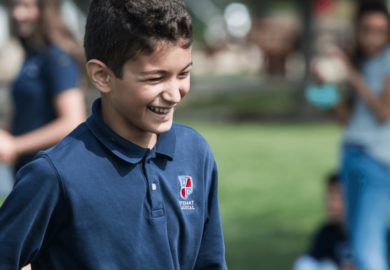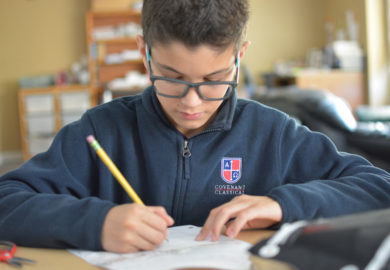Only Passionately Curious
A recent study out of England shows that, on average, young children ask nearly 300 questions per day, or over 105,000 each year.
“On average, young children ask nearly 300 questions per day.”
This staggering number leaves us with no doubt that humans have been created with an innate, insatiable desire to know and understand more fully. Curiosity is God-given and is essential to education, as growth would be virtually impossible without it.
Intellectual curiosity is foundational to all of the other virtues. It drives us to know truth, to understand the universe and our place in it, and to more fully grasp the mind and heart of God.






